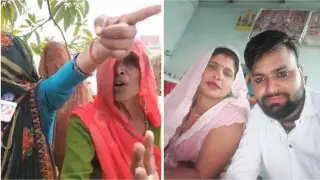
ANI
In a recent development, the Supreme Court has taken notice of the Gyanvapi mosque dispute and ordered to maintain the status quo regarding the performance of 'puja' in the 'Vyas Tehkhana,' southern cellar of the structure. This comes after the Gyanvapi mosque committee challenged the orders from both the Allahabad High Court and the Varanasi court, which allowed Hindus to pray in the mosque's cellar.
Chief Justice DY Chandrachud explained that since Muslim communities continue to offer Namaz without hindrance, and Hindu prayers are conducted in the Vyas Tehkhana, it is appropriate to maintain the status quo for now.
Supreme Court refuses to stay the Allahabad High Court order which had upheld the Varanasi district court's order allowing Hindus to perform prayers of deities inside the ‘Vyas Tehkhana’, southern celler of Gyanvapi mosque.
— ANI (@ANI) April 1, 2024
Supreme Court says bearing in mind the fact that the… pic.twitter.com/bINoRVSVO2
Considering the entry and exit points to the mosque, the CJI suggested allowing Namaz entry from the north side and continuing worship in the south cellar. The Court plans to seek replies and further hear the matter in July.
Representing the mosque committee, Senior Advocate Huzefa Ahmadi highlighted the unusual nature of the trial court and Allahabad High Court orders, preventing the mosque committee from seeking a stay. Ahmadi expressed concern over losing control of the site due to multiple suits filed in the trial court.
Senior Advocate Shyam Diwan, representing the Hindu side, argued against the Court's interference, citing the personal rights of the Vyas family, who have been pujaris for generations. Diwan emphasized that the final relief has not yet been granted by the Court.
Prayers in the Vyas Tehkhana began on January 31 following a Varanasi court order. Subsequently, the Allahabad High Court upheld this order, ruling the Uttar Pradesh government's 1993 actions illegal. Presently, prayers are conducted by a Hindu priest nominated by the Kashi Vishwanath temple trust.













Copyright © 2025 Top Indian News
